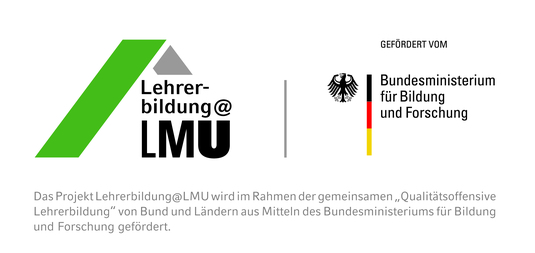Programme
Plenary Talk
Catherine Beavis (Deakin University, Australia)
Digital Literacies, Digital Games: Language, Learning and Play
Tuesday, 14th March, 09:00-10:00
 Digital games offer rich and immersive worlds where communication, play and multimodal literacies of all kinds beckon players to interact and engage. With their mix of text and action, entrancing visuals and instant feedback, digital games provide a context in which understanding and meaning-making, the representation of self, and interaction with others are core business, central to progress through the game and the satisfactions of play. Virtual worlds and digital games work as collaborative sites where meaning is negotiated and players are engaged in experiential learning of many kinds. Activities typically include planning, problem solving, decision making, risk taking, trial and error and purposeful communication of many kinds. Research into the promise of digital games for education identifies language learning, for both first and additional languages, as one of the main curriculum areas where games can be most effective, because of such qualities and the integrated and extensive nature of the informal worlds of the game. To participate in such worlds, players need to ‘read’ and understand information on hand, hints and cues, the rules of the game, the nature of the genre; what it means and what it takes to play, progress and win, supported by the wealth of paratexts that surround the game. In addition is the cultivation of cutting edge skills and lightning fast responses, in forms of play that range from the benign and orderly through to fast paced, ground-breaking, anarchic and byzantine. This keynote explores virtual worlds and ‘serious’ games, highlighting the role of digital and multimodal literacies in the creation of meaning for players, and the purposeful and powerful context they provide for communication, interaction and play.
Digital games offer rich and immersive worlds where communication, play and multimodal literacies of all kinds beckon players to interact and engage. With their mix of text and action, entrancing visuals and instant feedback, digital games provide a context in which understanding and meaning-making, the representation of self, and interaction with others are core business, central to progress through the game and the satisfactions of play. Virtual worlds and digital games work as collaborative sites where meaning is negotiated and players are engaged in experiential learning of many kinds. Activities typically include planning, problem solving, decision making, risk taking, trial and error and purposeful communication of many kinds. Research into the promise of digital games for education identifies language learning, for both first and additional languages, as one of the main curriculum areas where games can be most effective, because of such qualities and the integrated and extensive nature of the informal worlds of the game. To participate in such worlds, players need to ‘read’ and understand information on hand, hints and cues, the rules of the game, the nature of the genre; what it means and what it takes to play, progress and win, supported by the wealth of paratexts that surround the game. In addition is the cultivation of cutting edge skills and lightning fast responses, in forms of play that range from the benign and orderly through to fast paced, ground-breaking, anarchic and byzantine. This keynote explores virtual worlds and ‘serious’ games, highlighting the role of digital and multimodal literacies in the creation of meaning for players, and the purposeful and powerful context they provide for communication, interaction and play.
Plenary Workshop
Ben Goldstein (Cambridge University Press)
Digital Video: Exploitation and Creation

Tuesday, 14th March, 10:30-12:00
The moving image is taking centre stage in our everyday landscape of communication. This is blurring the distinction between the amateur and professional, the formal and informal, the verbal and visual. However, pedagogical use of video for language learning purposes is still often anchored in classroom tasks which don’t fulfil its true potential. This talk will investigate alternative ways that digital video can be exploited for its visual richness and how it can be integrated into other tasks, suggesting practical ways that visual literacy can be enhanced in the language class. We will also look at the benefits of learner-generated video material, in particular when taken out of the conventional classroom environment.
Panel discussion: "Medien im Englischunterricht - Blessing or Curse?"
(moderiertes Diskussionsforum mit Lehrkräften, ForscherInnen und Studierenden)
01:30-02:00 p.m.
Afternoon workshops
02:15 - 03:45 p.m
Dr. Grit Alter (Universität Innsbruck)
Hörspiele im Englischunterricht: Prozess-orientierte und differenzierte Projektarbeit
Ein Ergebnis der DESI-Studie (2009) zeigt, dass Lernende im Englischunterricht zu wenig sprechen. Dies scheint zu verwundern, lernt man doch eine Sprache hauptsächlich durch das Sprechen. Nicht von ungefähr ist eine der wesentlichen Prinzipien des Englischunterrichts der kommunikative Ansatz. Ausgehend von diesen beiden Prämissen, sind die Teilnehmer*innen dieses Workshops dazu eingeladen, durch die Nutzung unterschiedlicher Online-Tools und Schritt für Schritt ein eigenes Hörspiel zu erstellen und deren Potenzial für den kommunikativen Englischunterricht zu reflektieren.
Louise Carleton-Gertsch (Klett)
Media motivates: Using the internet, apps & co. in English lessons
Today we have a wealth of exciting new possibilities to make learning English more interesting, authentic and rewarding, both for pupils and teachers. Yet it is often difficult to find suitable resources due to the overwhelming number of websites, youtube videos and apps available. This talk, including practical tips and examples, will focus on how digital media and tools can be used alongside traditional ones to enhance the learning experience, no matter how "tech-savvy" you are.
Prof. Dr. Britta Viebrock, Universität Frankfurt
Südafrika im Film
Filme sind unmittelbar anschlussfähig an die Erfahrungs- und Lebenswelt der Schüler. Sie lassen sich zudem gut für handlungs- und produktionsorientierte Unterrichtsansätze nutzen, mit denen sich alle im Kerncurriculum spezifizierten Kompetenzbereiche fördern lassen. Anhand ausgewählter Beispiele zum Themenbereich South Africa soll in der Fortbildungsveranstaltung aufgezeigt werden, wie film literacy und multimodal literacy als erweiterte Zielvorstellungen eines modernen Englischunterrichts mithilfe von Filmen gefördert werden können. Ebenso wird verdeutlicht, wie Filme zur Bearbeitung landeskundlicher Themen eingesetzt werden können, die Darstellung aufgrund ihrer Fiktionalität aber zugleich kritisch hinterfragt werden muss.
Marion Fahn (Lernhausleitung an der Städt. Adalbert-Stifter- Realschule)
eTwinning: Europaweite Schulpartnerschaften und Projekte
Dieser Vortrag richtet sich an Lehrkräfte aller Schularten und Fachrichtungen, die an europäischer Projektarbeit interessiert sind. Sie erfahren, wie eTwinning im Rahmen von Erasmus+ Ihnen dabei helfen kann, schnell und unkompliziert Kontakte zu vielen unterschiedlichen Schulen in ganz Europa zu knüpfen und Projektpartner zu finden. Sie erhalten einen Einblick in die Funktionsweise von eTwinning, welches Ihnen ermöglicht internationale Projekte zu planen, durchzuführen und zu dokumentieren.
Susanne Hujer (Onilo)
Digitalised and animated children's picture books for the modern classroom
The first steps into the English language will be much easier for your pupils with Onilo. Through Boardstories your class will experience this new language with lots of fun. Additional interactive materials for every story provide tasks you can do with classes to practice new vocabulary as well as other useful skills.
Michael Fröhlich (MIB - Medienpädagogisch-informationstechnischer Berater des
Ministerialbeauftragten für die Gymnasien in Oberbayern-Ost; Gymnasium Trudering)
Urheberrecht im Englischunterricht
Aus Schulbüchern und Arbeitsheften kopiert, erstellten Lehrerinnen und Lehrer schon immer auch eigene Materialien für den Unterricht. Zu Zeiten, als ausschließlich Printmedien als Quelle benutzt und Fotokopien oder Folien als Unterrichtsmaterial erstellt wurden, war dies ein relativ einfaches und unproblematisches Unterfangen und die Gefahr urheberreichtlich erwischt zu werden, war gering. Im Zeitalter digitaler Medien und des Internet stehen mittlerweile unermesslich viele digitale Quellen zu Verfügung. Darüber hinaus sind die Möglichkeiten der Bereitstellung von Lehr- und Lernmaterialien vielfältiger geworden. Neben dem Arbeitsblatt in Form einer Fotokopie kann man des gefundene Material auch digital auf Lernplattformen, Schulhomepage oder Speichermedien etc. zur Verfügung gestellt werden. Die Freude über diese vielfältigen Möglichkeiten kann aber auch teuer werden. Dürfen alle verfügbaren Quellen ohne Einschränkungen in der Schule im Unterricht eingesetzt werden? – In diesem Workshop soll die juristische Lage erläutert und Möglichkeiten der Verwendung aufgezeigt werden.
HS-Prof. Univ.-Lektor Mag. Dr. Thomas Strasser (University College of Teacher Education Vienna, PH Wien)
Mind the App! Your personal survival kit for the digital jungle
This workshop is designed especially for EFL teachers who would like to give new learning technologies a try, but still have some doubts about technology-enhanced language teaching/learning. All the presented tools and tricks are quick and dirty (i.e. extremely intuitive, simple and free) and do not require technical expertise. The workshop starts by addressing the most 'popular' problems, fears and clichés in the field of technology-enhanced learning and provides practical answers to these problems in order to partly de-mystify the complexity of internet-based language learning/teaching. After a theoretical input, the toolkit will be presented. It should help teachers find their way through the internet information jungle and focus on intuitive tools (i.e. mobile and browser-based Educational Apps) that support the four skills, generate simple quizzes, produce highly creative podcasts, etc. Practical examples of Edu-App classroom use will be provided.
04:15-05:45 p.m.
Amos Paran (University College London)
E M Forster: Film and Fiction in the Language Classroom
The novels of E M Forster have proven a rich seam of source material for film adaptations: five of his six novels (A Passage to India, A Room with a View, Maurice, Where Angels Fear to Tread and Howards End) were turned into films, attracting some of the finest directors and actors of the 20th century and resulting in highly successful adaptations. In this workshop I will exemplify a variety of activities that teachers can use with some of these novels. My main interest is in the way in which an understanding of the novels and the films can be translated into classroom activities, and the ways in which films can serve as a point of entry into literature in secondary school settings. Methodologically, I connect the type of work that I suggest for the novels and their films to Task-Based Learning and Teaching, a framework which helps teachers construct learning and teaching sequences that incorporate a meaning focused process and which culminate in a task whose outcome is tangible (Skehan 1998; Willis 1996). I also connect this to ways in which learners can be taught the metalanguage of film and film analysis and in which they can develop their own critical awareness of film as a medium.
Axel Gutjahr (Cornelsen)
Digitale Medien als wertvolle Hilfen im Schulalltag
Die neuen, digitalen Medien des Cornelsen Verlages zum LehrplanPLUS bieten einen enormen Mehrwert für den Fremdsprachenunterricht. Das digitale Schulbuch, der Unterrichtsmanager, das Online-Portal Diagnose & Fördern sowie die interaktiven Arbeitsheften eröffnen vielfältige Möglichkeiten, Schüler und Schülerinnen individuell zu motivieren und zu fördern sowie die Lehrkraft bei der Unterrichtsvorbereitung wirksam zu entlasten.
Birgit Ruckdäschel (stellv. Schulleiterin Gymnasium Lappersdorf)
Wie setze ich Smartboards im Englischunterricht ein?
Interaktive Smartboards oder Whiteboards werden an immer mehr Schulen eingeführt. Im Workshop wird anhand konkreter Beispiele aus dem Englischunterricht gezeigt, welche Chancen und Probleme es beim Einsatz von Smartboards gibt und in welcher Form sich das Smartboard sinnvoll verwenden lässt. Dies umfasst Wortschatz-, Grammatik- und Textarbeit sowie kreative Möglichkeiten. Die Workshopteilnehmer/-innen sollen dabei auch selbst das Smartboard nutzen.
Georg Schlamp (StD, Seminarlehrer Englisch am Gymnasium Neubiberg)
Fremdsprachenunterricht mit dem iPad: Modern, kreativ und binnendifferenzierend
Moderner, kreativer, handlungsorientierter und schülerzentrierter Fremdsprachenunterricht mit Hilfe des iPads: Unzählige Apps und eine Flut an Möglichkeiten verhindern es oft, richtige Wege zu finden, Tablet-Computer wie das iPad gewinnbringend einzusetzen. In diesem Workshop erhalten Sie Anregungen sowie konkrete und erprobte Anwendungsbeispiele aus dem Fremdsprachenunterricht, sowohl für Sie als Lehrer als auch für die Schüler. Kostengünstige oder kostenfreie Apps wie Popplet Lite, PuppetPals (Director's), ComicBook, Pic Collage, und viele weitere werden vorgestellt und angewandt. Der Workshop ist schulartübergreifend. Teilnehmer sollten nach Möglichkeit ihr eigenes iPad (oder auch andere Tablets) mitbringen und die genannten Apps bereits installiert haben. Auch die Teilnahme ohne Tablet ist natürlich möglich.
Pete Sharma (Oxford University Press)
Practical ideas for using digital technologies in language teaching
While new technology continues to develop at a tremendous speed, it is important for language teachers to remain focused on good pedagogical principles. This interactive, practical workshop is divided in two parts. Part one will critically analyse key learning technologies, including m-learning (mobile learning) and adaptive learning. Part two will provide practical teaching ideas which integrate technology in the following areas: grammar, vocabulary, the four language skills and pronunciation. Participants will leave with fresh insights into one of the most exciting areas of language teaching today.
Rob Dean (Pearson)
Using Technology to create IDEAS: Individual, Differentiated, Encompassing, Autonomous and Successful Learning
No two learners are alike. Each has different needs, goals interests and learning styles and the ‘one size fits all’ approach rarely if ever works in the 21st century learning environment. Accommodating such variety can present a huge challenge for teachers in the extra work it can entail. This session will investigate some of the common differences between learners before moving on to look at some of the ways in which technology can be effectively employed to cater for the individual needs of learners. The focus will remain clearly on providing opportunities for success for all learners whatever their characteristics whilst avoiding the need for a massive amount of additional work on the part of the teacher. The session will feature material from Pearson’s renowned online MyEnglishLab.
Sanne Kurz (Hochschule für Fernsehen und Film München)
Standing by and: Action! - Visual Storytelling im Englischunterricht
Images offer a powerful tool to tell stories, however, they are at their best when they are speaking to us in forms other than just words. To avoid the talking head to learn to let images speak, we will venture out in to the "wild LMU“. After a brief introduction on images and visual storytelling, we will perform, discuss and analyze exercises with iPads. You will take images telling a story in one shot and three shots. You will see and learn how a story is unfolding in between two shots. This workshop can be the base for active media use even in classrooms with little time and not too much technical knowledge.
This conference was made possible through the support of the following institutions:




A special thank you to our sponsors and donors:


